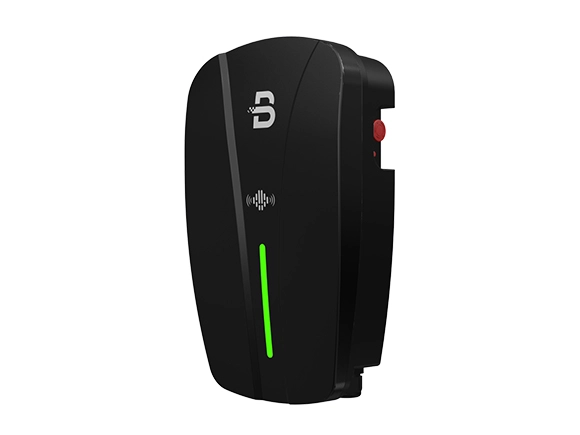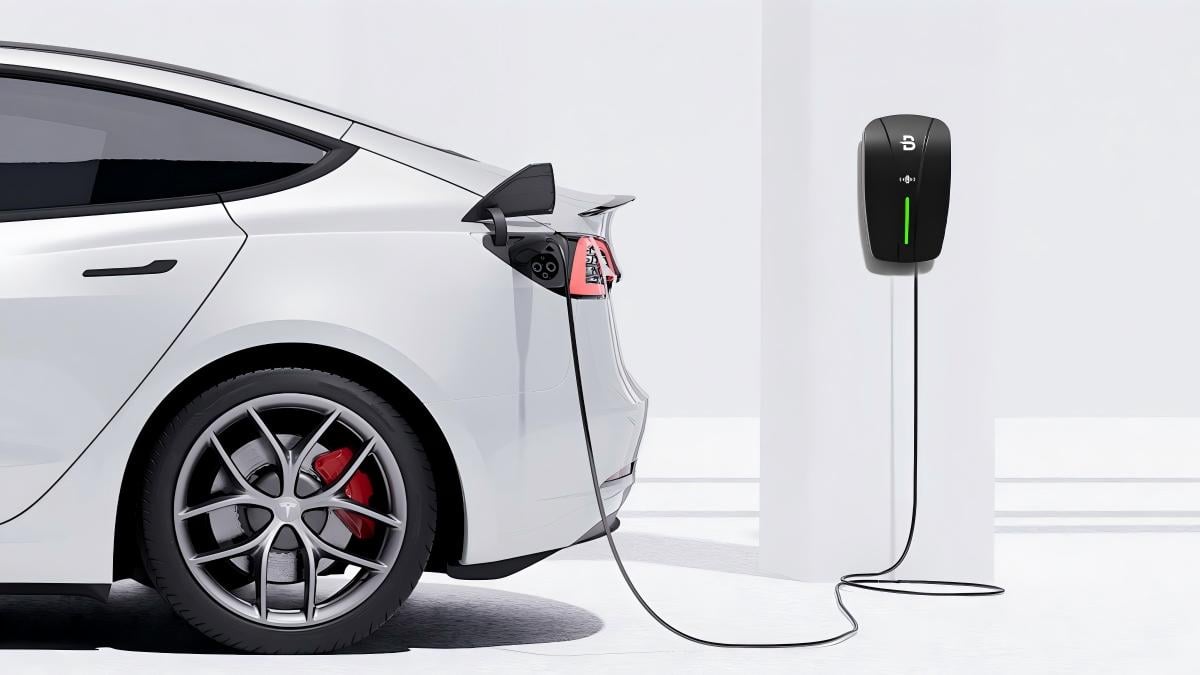شاحن السيارة الكهربائية المحمول >
شاحن السيارة الكهربائية المحمول >















محطة شحن EVB 22kW من النوع 2 AC هي محطة شحن للسيارات الكهربائية مثبتة على الحائط وحاصلة على تصنيف IP65 وتوفر شحنًا آمنًا وموثوقًا به من المستوى 2.
إيقاف الشحن وإصدار إنذار عند فتحه.
التحكم عن بعد وعرض سجل الشحن.
يدعم التنشيط المتزامن لـ DLB و MODBUS.
متوافق مع شبكات ثلاثية الطور وأربعة أسلاك 110 فولت
توقف عن التشغيل بمجرد ارتفاع درجة الحرارة.
يمكن تخصيص مظهر 6 ألوان حسب الطلب.
إي في بي 22 كيلو واط توفر محطة شحن السيارات الكهربائية ذات التيار المتردد أداءً من المستوى التالي مع سعة إدخال جهد مزدوج تصل إلى 22 كيلو وات لسرعات شحن فائقة السرعة. بفضل هيكلها القوي IP65 تصميم يوفر الحماية ضد جميع العناصر.


الـ EVB 22 كيلو واط تستخدم محطة شحن التيار المتردد من النوع 2 تقنية موازنة الحمل الديناميكية (DLB) لضبط خرجها بناءً على مراقبة استخدام الطاقة في الوقت الفعلي. يقوم صندوق في لوحة قاطع الدائرة الرئيسية بتحليل الأحمال، وتنظيم خرج محطة شحن المركبات الكهربائية بشكل ديناميكي بين 6-32 أمبير.
ويضمن ذلك موازنة الطاقة بشكل آمن، وحماية النظام الكهربائي من التحميل الزائد أثناء الشحن المتزامن واستخدام الأجهزة المنزلية.
ملكنا 22 كيلو واط تتيح محطة شحن التيار المتردد، ذات الاتصال اللاسلكي والبرمجيات المستندة إلى السحابة، للمستخدمين التحكم عن بعد في جلسات الشحن عبر تطبيق الهاتف المحمول، والذي يوفر بيانات الاستخدام في الوقت الفعلي والإشعارات وتتبع التكلفة.

من الاستشارة إلى التثبيت، يضمن فريق الخبراء لدينا حلاً شاملاً لشحن المركبات الكهربائية مصممًا خصيصًا لتلبية احتياجاتك.
جميع الحقوق محفوظة © ٢٠٢٥، EVB. مدعوم من beny.